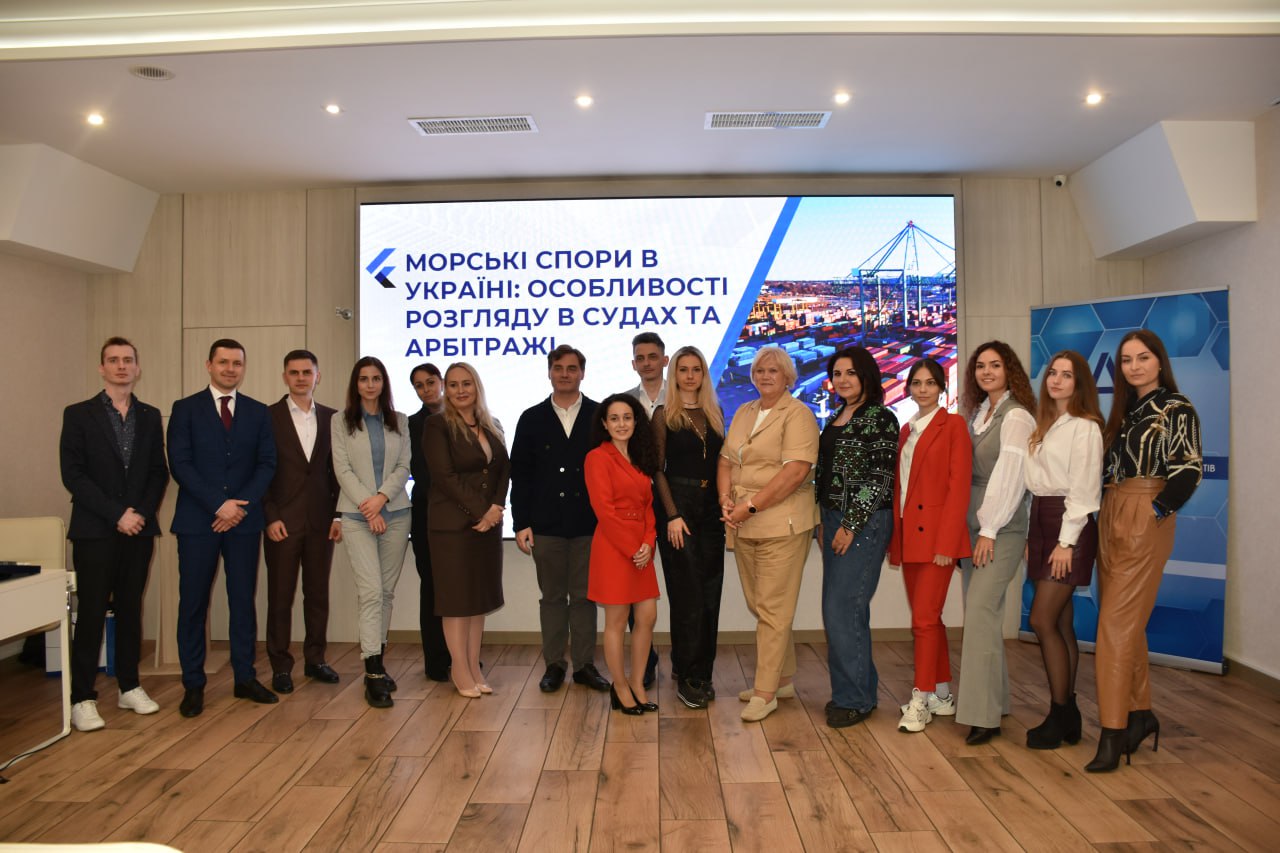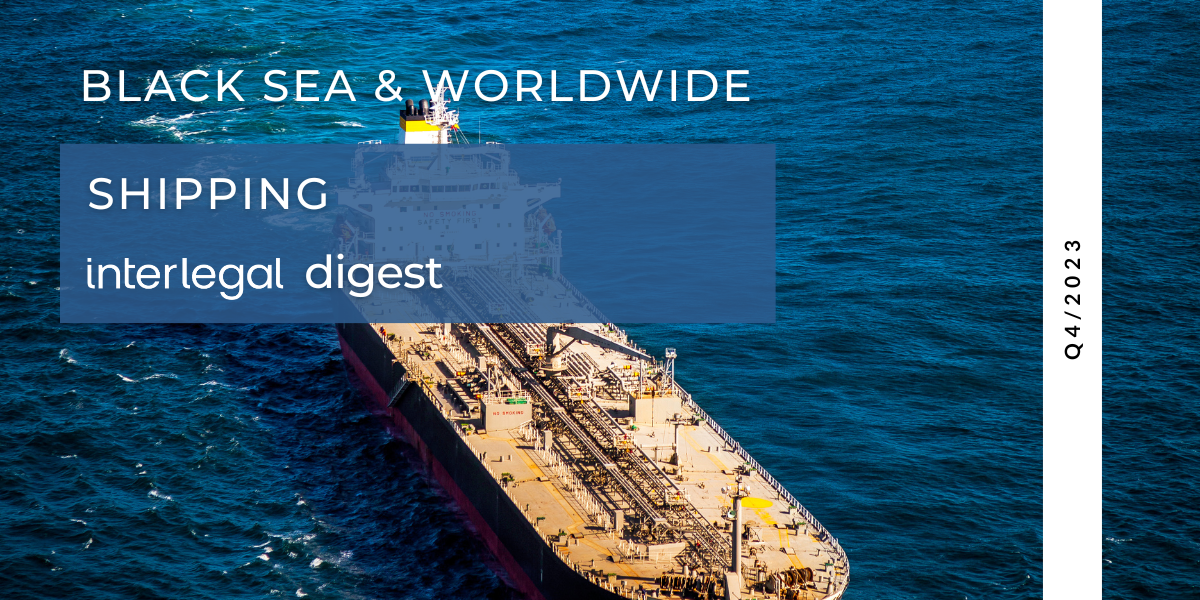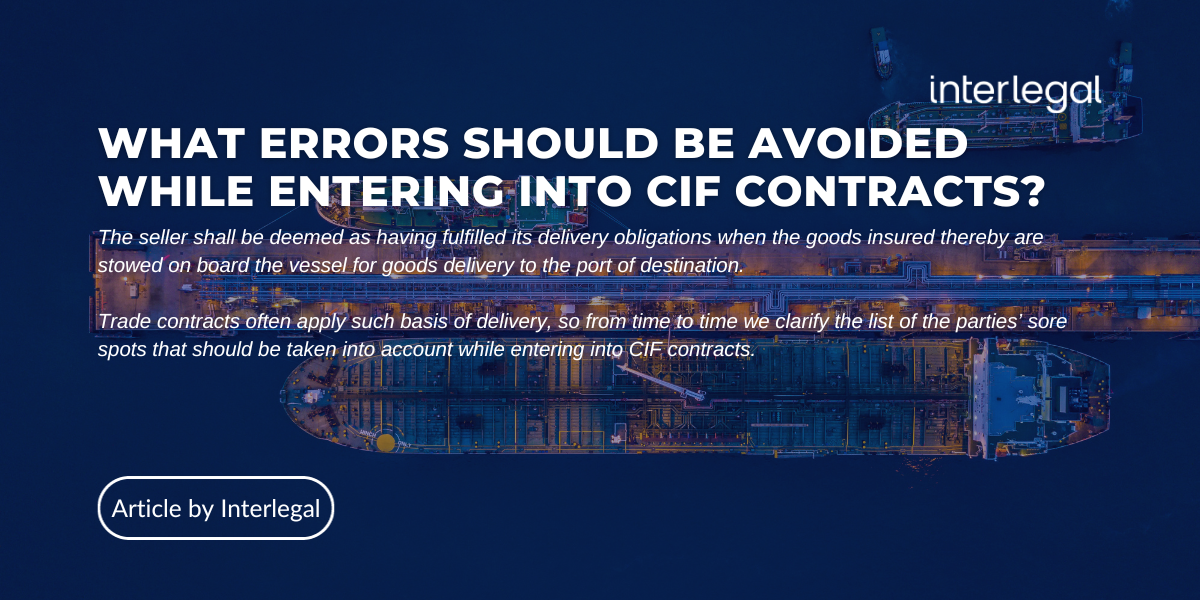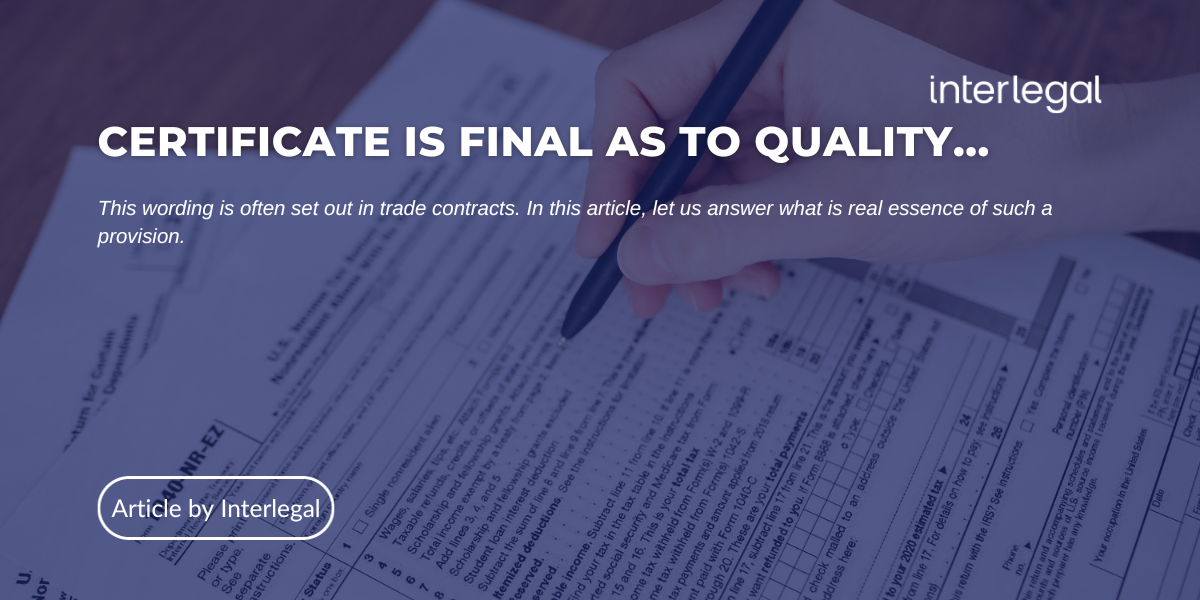Tips for modern Ukrainian shipping
13 January, 2011
2
Twenty years ago the Black Sea Shipping Company (BLASCO) was the biggest shipping company in the world. When you remind the older generation in the shipping business of that, they knowingly nod, but the new generation will not understand what you are talking about. Much water has flowed under the bridge since then.
Hard to believe, but Ukraine has failed to launch reforms in shipping and transport for almost 20 years. What is more surprising is that Ukraine still has serious potential. Its strategic position at the crossroads between Europe and Asia is a decisive advantage. Being the second-largest country in Europe, with the coastline of 2,782 km, 18 maritime ports and two shipping rivers (the Danube and Dnipro), Ukraine is in a good location for logistic and port infrastructure development.
Usually requests for assistance begin with questions like “How would employment contracts provisions be interpreted by Ukrainian courts on subjects like applicable law, jurisdiction, percentages of disability and the payment of contractual compensation etc.?” or “What about ship arrests?”.
These issues are very important because Ukraine remains one of the largest seafarer suppliers to the world maritime fleet (about 20%) having more than 200 crew manning offices in Odessa alone.
From a labor law perspective Ukraine remains a socialist state. Employment is regulated by the Constitution of Ukraine and the Labor Code of Ukraine (1971), the latter being based on the socialist doctrine of the former USSR. In general legislation is protective of the rights of employees. So:
– a claim can be lodged with a court at the locality where a claimant lives,
– claimants get relief from the state duties;
– when a court comes to the conclusion to protect a seafarer it also awards moral damages and the court itself defines the amount of compensation.
Under the current court practice approximately 80% of employment claims, including claims for moral damages, are granted by the courts. It is noticeable that trade unions usually act as a party in court hearings and ITF rules/recommendations are welcome by courts.
As for vessel arrests it should be stated that Ukraine is not a party to Ship Arrests Conventions. There are no special regulations or procedures for arrests of vessels in Ukraine. This makes it messy, contradictory and leads to certain tricks and traps. Any vessel may be arrested like any other property.
Courts apply a very formal approach to claims. Arrest is possible only as a security under the claim and there must be some connection with the Ukrainian jurisdiction. Businesses with Ukrainian entities need to be very careful.
Lately the country has been more involved in political battles than in a day-to-day constructive work. It looks like lawmakers have no time to decide whether they wish Ukraine to remain a shipping country, or a country by the sea.
Recently, we made a presentation in Marbella at International Multimodal Transport Association (IMMTA) colloquium dedicated to Rotterdam Rules. Answering the questions from the floor we came to a conclusion that the ex-socialist countries (including those that now make a part of EU such as Slovenia, Lithuania, etc.) provide good substantive laws but lack corresponding procedures.
Ukraine always had an established legal system based on continental law. The principal areas of law, such as the law of contracts, civil law obligations and liability, torts and labour law, as well as applicability of choice of law and international arbitration to international business transactions, are based on European tradition. But ex –USSR approach is extant to many legal institutes in this country.
Thus, there are about 550.000 documents in the official legal database of Ukraine, excluding local acts. Regretfully this is a case when quantity does not make quality. Sometimes laws contradict each other, creating contradictions which are difficult even for professionals (judges and lawyers) to interpret.
But the real mess is by-laws that State authorities (the President, the Cabinet of Ministers, the ministries and other state bodies) adopt to implement general provisions of laws. One can hardly believe how creative they are sometimes in developing “new” legal ideas.
Another problem is the Ukrainian courts. They are far from independent and not always professional.
The core problems are different and are caused mostly by a lack of a systematic approach in drafting laws and regulations in relation to international experience and integration. Consequently at the moment it is too early to discuss the adoption of Rotterdam Rules or International Labour Convention 2006 in Ukraine as we need to restructure everything inside the country. Nevertheless life goes on and this country remains a big and important market for shipping industry.
Annually we hold a conference “Practice of maritime business: sharing experience” collecting about 150 professionals from about 15 countries. The forum became a real platform for discussion of current trends in modern shipping and consideration of practical loss prevention issues in the Black Sea region. The next Conference will be held on June 2-3, 2011. It will be dedicated to the subject of “Cargo”.

























































